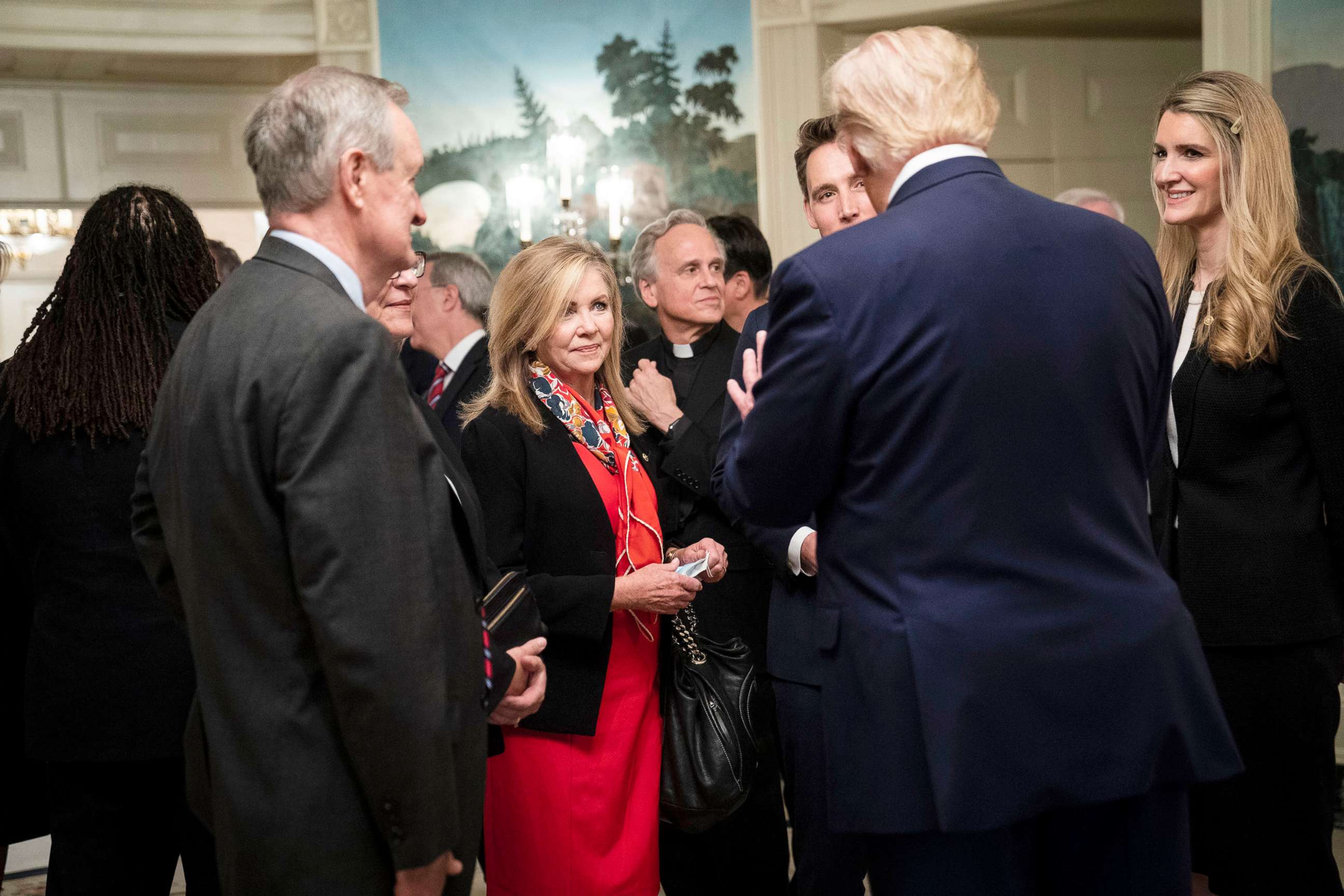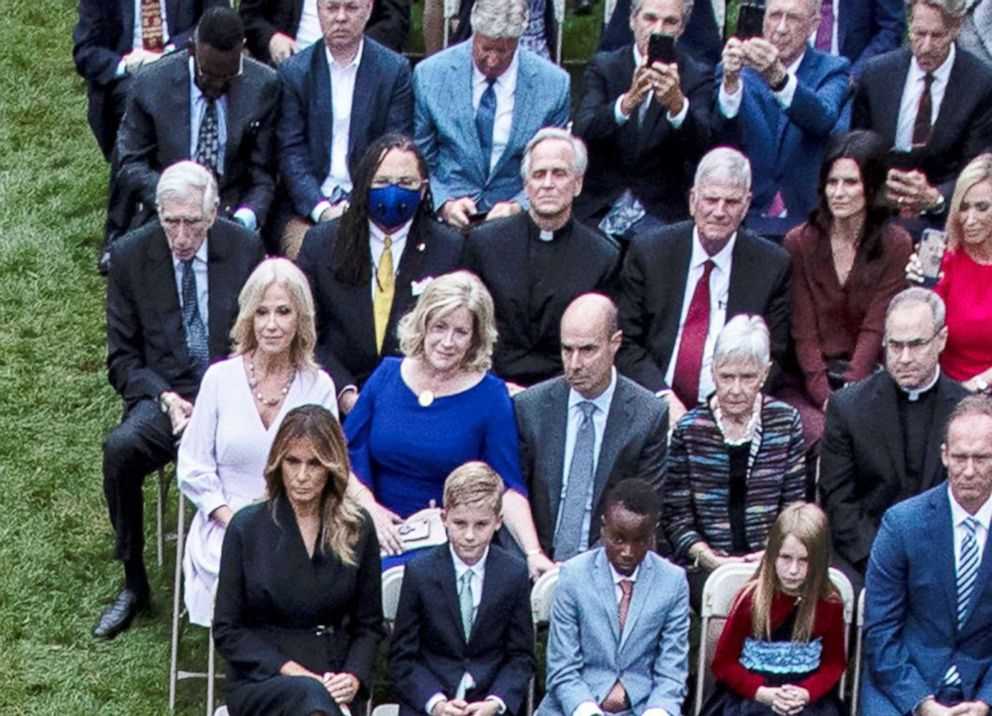Students formally chastise Notre Dame president for not wearing mask at White House
Rev. John Jenkins was seen maskless and shaking hands at the SCOTUS nomination.
The University of Notre Dame president continues to face criticism over his behavior during a White House event last month.
The South Bend, Indiana, university's student senate passed a resolution Thursday night "formally disapproving" of Rev. John Jenkins' "violations of university" health policy while attending the SCOTUS nomination ceremony in the Rose Garden.
Jenkins was seen in photos and videos not wearing a mask or social distancing at the Sept. 26 event. He subsequently was one of over a dozen attendees to test positive for COVID-19.
The resolution, obtained by ABC News, said "it is disheartening for the student body, faculty, and staff to witness such actions during a time when all members of the University are being asked to act prudently for the sake of the physical safety of the Notre Dame community, the physical safety of the South Bend community, and the furthering of Notre Dame's academic mission as a university."

As students have faced disciplinary consequences for not following campus health protocols, "there must be appropriate consequences for all actions in violation of University policy whether the perpetrator is a member of the student body, faculty, staff, or administration," the resolution said.
Following the White House event, Jenkins issued an apology to Notre Dame students, faculty and staff for his "error of judgment in not wearing a mask during the ceremony and by shaking hands with a number of people in the Rose Garden."
"I failed to lead by example, at a time when I've asked everyone else in the Notre Dame community to do so," he said in the Sept. 28 message. "I especially regret my mistake in light of the sacrifices made on a daily basis by many, particularly our students, in adjusting their lives to observe our health protocols."
Jenkins said he felt it was important he attend the nomination of Amy Coney Barrett, a Notre Dame Law School graduate and former university professor. He said he took a rapid COVID-19 test upon arrival at the White House, which came back negative, and was told it was safe to remove his mask. Out of an "abundance of caution," he decided to quarantine once returning to South Bend.
Since the event, Jenkins was one of at least 13 attendees to test positive for COVID-19, including President Donald Trump, first lady Melania Trump, press secretary Kayleigh McEnany, former New Jersey Gov. Chris Christie and Sens. Mike Lee and Thom Tillis.

The university announced Jenkins' diagnosis in an Oct. 2 email to students, noting that he was tested after learning that a colleague he had been in "regular contact" with had tested positive for the virus.
"My symptoms are mild and I will continue work from home," Jenkins said in the email. "The positive test is a good reminder for me and perhaps for all of how vigilant we need to be."
This is not the first time Jenkins has faced criticism for not following COVID-19 protocols. On Aug. 6, he sent an email to the campus community apologizing for not social distancing while posing for photos with students. "I am sorry for my poor example, and I am recommitting to do my best," he wrote.
Notre Dame has been committed to reopening its campus during the pandemic since the spring. In late May, Jenkins penned a New York Times opinion piece with the bold headline, "We're Reopening Notre Dame. It's Worth the Risk." Following off-campus outbreaks in August, the campus went on lockdown for two weeks and warned that students could face "severe disciplinary action," including dismissal, for not following health protocols.
The student senate's resolution asked that Jenkins review the university's COVID-19 leadership training and requested that the administration meet with student leaders to "review and potential amendment of certain University campus life COVID-19 policies in the coming weeks to address frustrations of the student body."
In a statement to ABC News, the university did not comment on the resolution, though said that Jenkins' COVID-19 symptoms have improved.
"Since testing positive for Covid-19, Father Jenkins has experienced moderate symptoms that have lessened over time. He has worked remotely throughout," university spokesperson Paul Browne said.
The resolution comes amid building frustration with Jenkins' leadership. Earlier this week, the faculty senate voted to postpone a no-confidence vote in his leadership to have time to review the motion. Last week, the student senate rejected a student petition calling for Jenkins' resignation, with some members preferring a less extreme measure.




